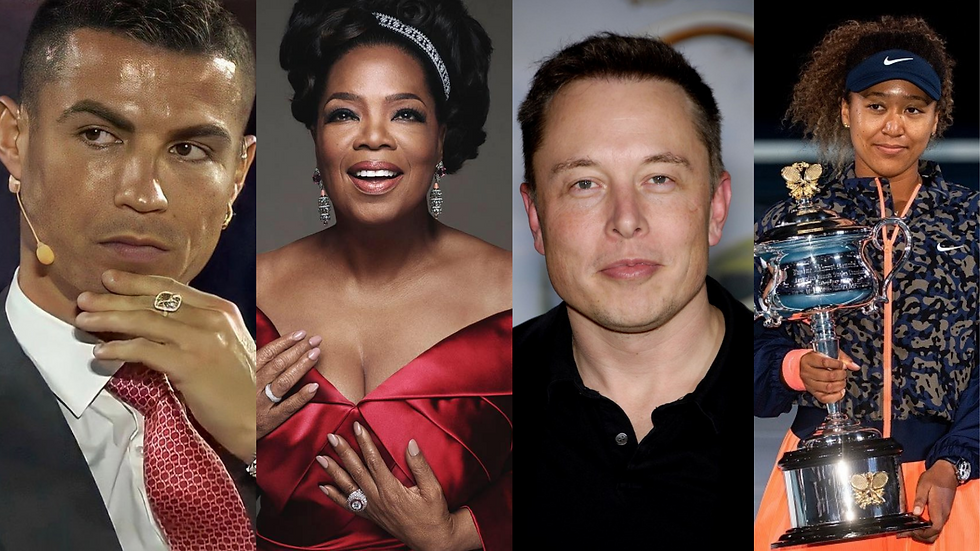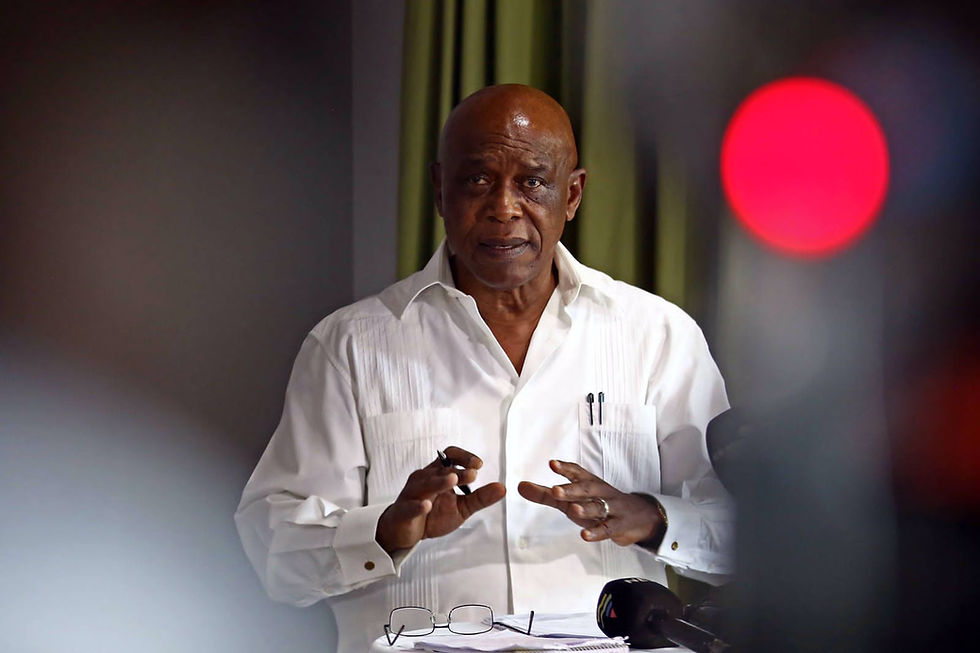Ronaldo's Coca-Cola 'impact' highlights celebrity meme stock appeal
- Siya Miti

- Jun 21, 2021
- 4 min read
Marketers have a massive opportunity to display brands with event sponsorships. But Cristiano Ronaldo’s sanctimonious health maniac moment which allegedly triggered a $4 billion dip in Coca-Cola stock value, illustrates how celebrity influence could pose meme stock risk to brands.
A meme stock is one that increases sharply in value or crashes based on social media influencers.

Ronaldo shifted two Coca-Cola bottles placed in front of him off-frame, gestured with a bottle of water while reportedly saying: “drink water”, at a Euro 2020 press conference last week. Shortly thereafter, the market value of the beverage company’s stock dipped by $4 billion from $242 billion to $238m billion.
Of course, rational investors look closely at the intrinsic value of the company's stock value, so Ronaldo’s antics would not register even as a blip in the radar of concerns. However, even though the company has bottled water, its Coca-Cola branded drink in the iconic bottle is the crown jewel of its product mix and carries the company's lesser-known brands.
While some market analysts dismissed the $4 billion dip as sheer coincidence, many commentators are convinced that jittery investors thought otherwise. Coca-Cola played it cool and issued a statement basically affirming Ronaldo’s prerogative to drink whatever he wanted. The company later announced that it would list on bourses in Johannesburg and Amsterdam within the next 18 months, which should be enough to take investors' eyes off the marketing mishap.
No matter which side of the debate one stands when it comes to celebrities’ influence on brands – perceived or real, positive or negative – celebrities hold immense influencer power. Ronaldo is certainly not the first celebrity to wield this kind of influence over a brand or a whole industry.
Oprah Winfrey's celebrity influencer effect
In the mid-90s, Oprah Winfrey was sued by the beef industry in Texas, after the queen of talk hosted an episode that zoomed in on the perils of eating beef on the Oprah Winfrey Show. She casually said she did not see herself eating a burger based on the alleged perils of beef discussed by a guest on the episode. The price of beef took a knock and beef producers and cattle farmers of Texas put the blame squarely at the door of Winfrey. She ultimately won the civil suit in 1996.
Over the years, perhaps with an understanding of Winfrey’s influence as a result of the lawsuit, many companies put their brands on her show as part of Oprah’s favorite things. Some brands were mentioned as “free gifts” ranging from books to cars for each guest. This may have revolutionised the influencer culture we see on social media today.
Winfrey in 2015, bolstered the share price of Weight Watchers (WW) by nearly 20% in the “I love bread commercial” where she claimed to love lost 26 pounds, despite eating bread every day. Winfrey who was a WW shareholder at the time credited the company’s weight-loss programme for helping her lose weight. Winfrey was also a WW shareholder at that point and helped her own stock grow in value.
Musk turns crypto to meme stock
Elon Musk who is one of the top two wealthiest businessmen in the world recently relegated cryptocurrency Bitcoin to the realm of meme stock. Musk created a pump and dump frenzy with Bitcoin and Dogecoin. Week in week out, in a series of sometimes cryptic tweets, Musk signaled that he would buy or sell-off Bitcoin.
His mixed signals put the cryptocurrency market into a tailspin, much to Musk's amusement. Ultimately several cryptocurrencies including Bitcoin, crashed between the end of May to date, with the Bitcoin value now hovering around $32600 after reaching a peak of $65000 earlier this year. It raised questions about the dangers of one person single-handedly having so much influence in an entire asset class market. But being largely unregulated as it is, Musk could enjoy toying around with cryptocurrencies to his heart’s content with no consequences.
How tennis squandered a good PR opportunity with Osaka
If anything demonstrates that marketers duties don't end with displays and product placements, it's the backlash against Naomi Osaka for withdrawing from interviews to manage her depression. Roland Garros, the US Open and Wimbledon released a statement admonishing her, in a somewhat knee-jerk reaction.
Many news outlets and commentators jumped on the bandwagon of accusing her of ditching her obligations to sponsors, ignoring her depression as a valid reason to stay away from press conferences.
Meditation app company Calm seized the moment and announced that it would pay Osaka’s fines for not appearing in press conferences. Nike, Mastercard and TAG Heuer were among the sponsors who took the smart move to stand in solidarity with Osaka, recognizing what a public relations misstep it is to force her to abide by “press obligations” to the detriment of her mental health. Consumers who suffer from depression or other mental health problems and those who are Osaka's fans will remember that.
It's no doubt that brands pour billions of dollars to support events and the sports personalities as brand ambassadors. The symbiotic relationship between the brands that sponsor events and event organizers has endured decades because of its mutual benefit in reaching spectators, while the brand subtly endears itself to consumers. That is unlikely to change in the foreseeable future, but as Ronaldo showed the rules of engagement must. Starting with the fact that the sponsor's brands doesnt just have to align with him, but spectators as well. Not to mention the messed-up message that tennis tournament bosses sent when they showed no regard for upcoming tennis superstar Naomi Osaka's mental health.
Caption: Cristiano Ronaldo, Oprah Winfrey, Elon Musk and Noami Osaka.
(Collage with pictures from Facebook



Comments